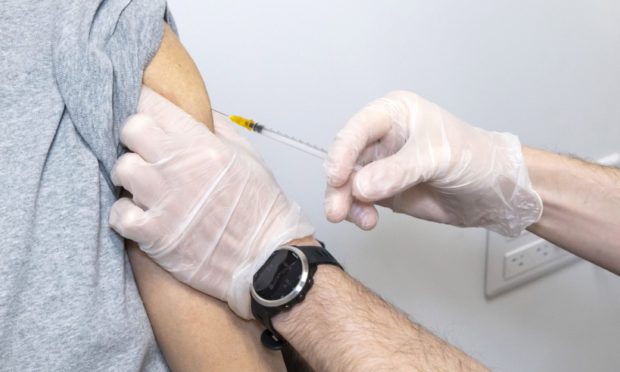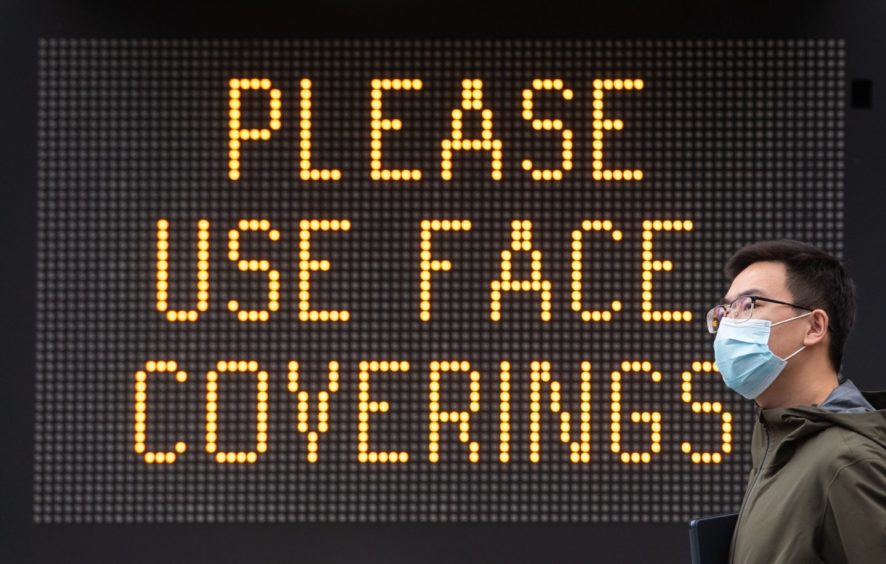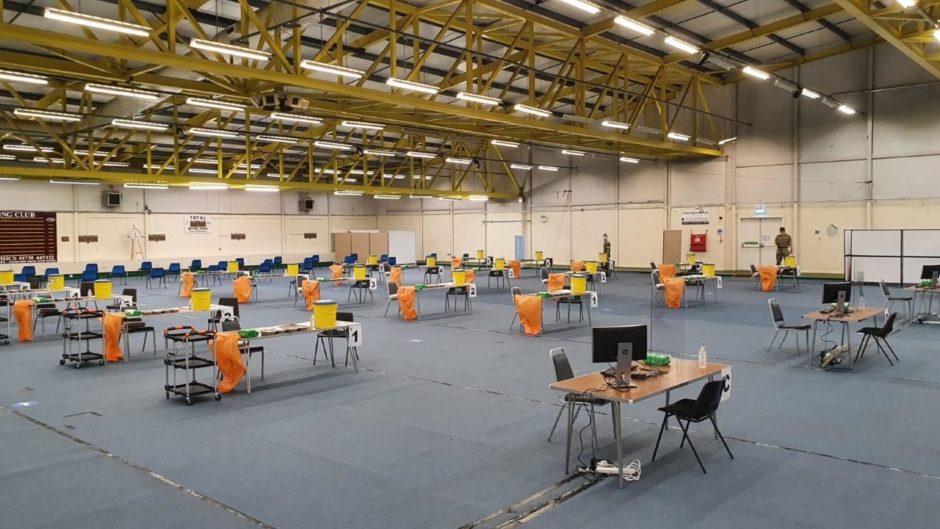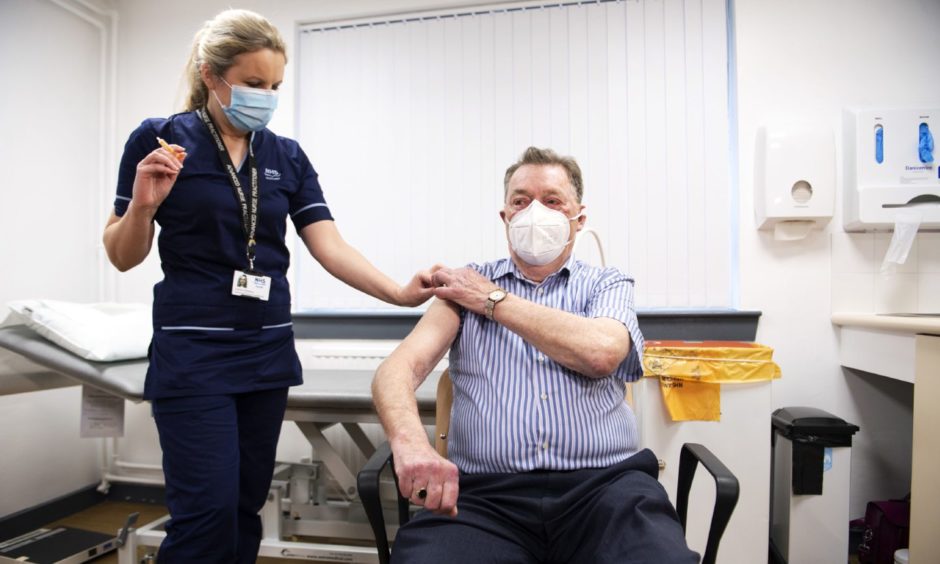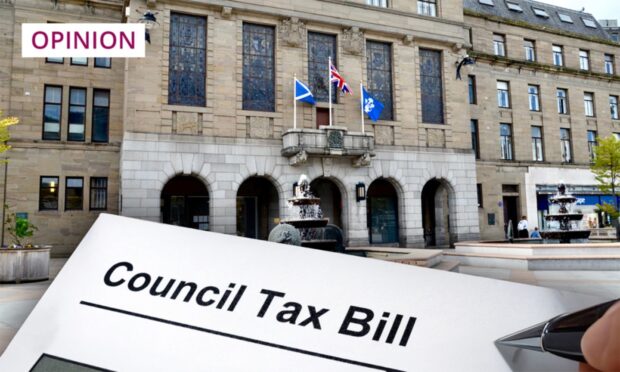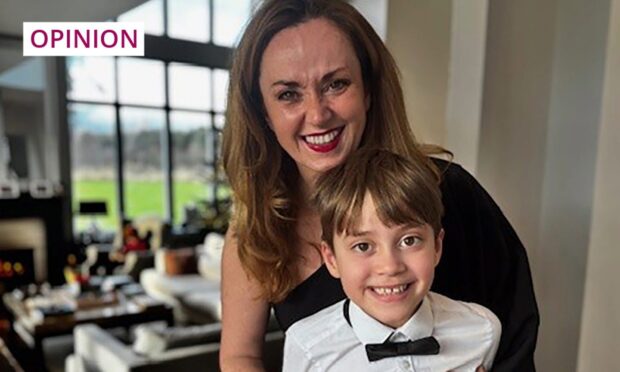I haven’t written about Covid-19 here for ages.
There’s a phrase I couldn’t have pictured myself saying this time last year.
I started this column at the end of March, the day after we were sent packing from the office to embark on the first lockdown.
Ah innocent days.
Laptop balanced on my knee, head spinning, no idea what 90% of my colleague’s phone numbers were, never mind how to share my screen in a Microsoft Teams video conference call, or any of those other nifty technical skills that now occupy the brain space we used to waste on human contact.
Like a stuck record, I wrote about the coronavirus – and wondered when there would ever be anything else going on in our lives
‘Write about something that happened that week’ was the brief and for a while I’d get to Thursday and look back on the week’s papers and realise there was only one story in town.
The theme might have been different but the coronavirus was always there at the root of it, shaping the headlines, dominating our reporting, hanging over all our heads like a big old doom cloud.
And so, like a stuck record, I wrote about the coronavirus – the lives lost, the quiet courage of the key workers, the emotional release we all found in the weekly clap for carers – and wondered when there would ever be anything else going on in our lives.
And now here we are. Getting on with things in Covid-adjusted terms. I would no more leave the house without a face mask and hand sanitiser than I would without my keys and mobile phone, but I couldn’t tell you what the R rate is. Do they even hold Covid briefings any more?
The news is filled with normal-ish things again. Election drama, dirty campers, missing persons, teenage firebugs.
Some days, if it wasn’t for the fact I’m still dressed in pyjamas at 4pm and couldn’t tell you if I’d brushed my teeth, I could almost forget we’re living through a once in several generations pandemic.
Life goes on, for us lucky ones at least. There are subjects coming at me from every section of The Courier but it’s not normal is it? The rona is still out there, a low level drone beneath everything we do, and it’s been weeks since I mentioned it. So indulge me.
A date at Dewar’s with the shiny needle of hope
Because something big did happen this week and I’d forgotten all about it until now. And that tells me something about how far we’ve come.
I had my first jab on Saturday. It was a milestone and a doddle all at once.
No pain, not even a sore arm, certainly none of the flu-like symptoms that have floored some of my pals (I swear that farm childhood has given me an immune system that’s three parts dirt, two parts Massey Ferguson, wholly invincible).
It’s sad to admit it but it was probably the most sociable thing I’ve done in the last 12 months.
The nice couple across the road were in the queue in front of me and the lady next door was one of the volunteers who welcomed us at the entrance to the Dewar’s Centre in Perth and handed out disposable masks as they shepherded us into the queue towards the booths containing the Army medics and their shiny needles of hope.
I don’t know what goes into those little vials of Oxford AstraZeneca but it must be the good stuff because I left feeling 10ft tall, the thanks of the stewards ringing in my ears and the smug glow of righteousness propelling me back out into the sunlight.
After 12 months of feeling pretty helpless and battered down, when all the messages have focused on the things we shouldn’t do – don’t leave the house, don’t visit family and friends, don’t hug, don’t touch that surface – it feels good to take a baby step in a positive direction. To have some agency in your own fate again.
Lots of you will be a step ahead, of course. More than 31 million people in the UK have had at least one dose since the vaccination programme started in December and my parents’ generation are already rolling up their sleeves to receive their second.
Lots of you will be eagerly awaiting the arrival of the blue envelope.
Some of you might be swithering. The findings linking the Oxford Astrazeneca jab to blood clots and the recommendation that under 30s should be offered the Pfizer or Moderna vaccinations are causing pause for thought beyond the ranks of anti-vaccers.
But as Professor Jason Leitch said in a radio interview on Thursday – the day before he too was due to go his jab – the risk of harm from Covid-19 is far higher and it’s the success of the vaccination programme that has helped to make it feel like a vanishing threat.
So I hope the switherers aren’t swayed. And I hope the folk who aren’t fussed about protecting themselves have an eye on the bigger picture.
Because it’s a tiny wee thing for one person to do. So tiny you might well have forgotten about it a week later too.
But all those tiny wee steps are edging us closer to a prize we couldn’t have imagined a few months ago and there may even come a day when we can put this to the back of our minds for real.
